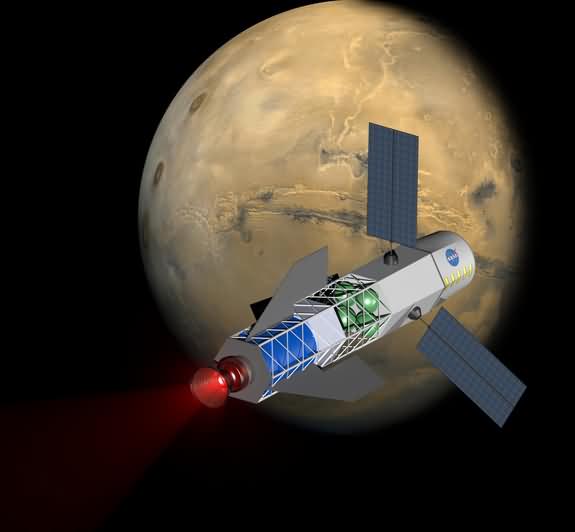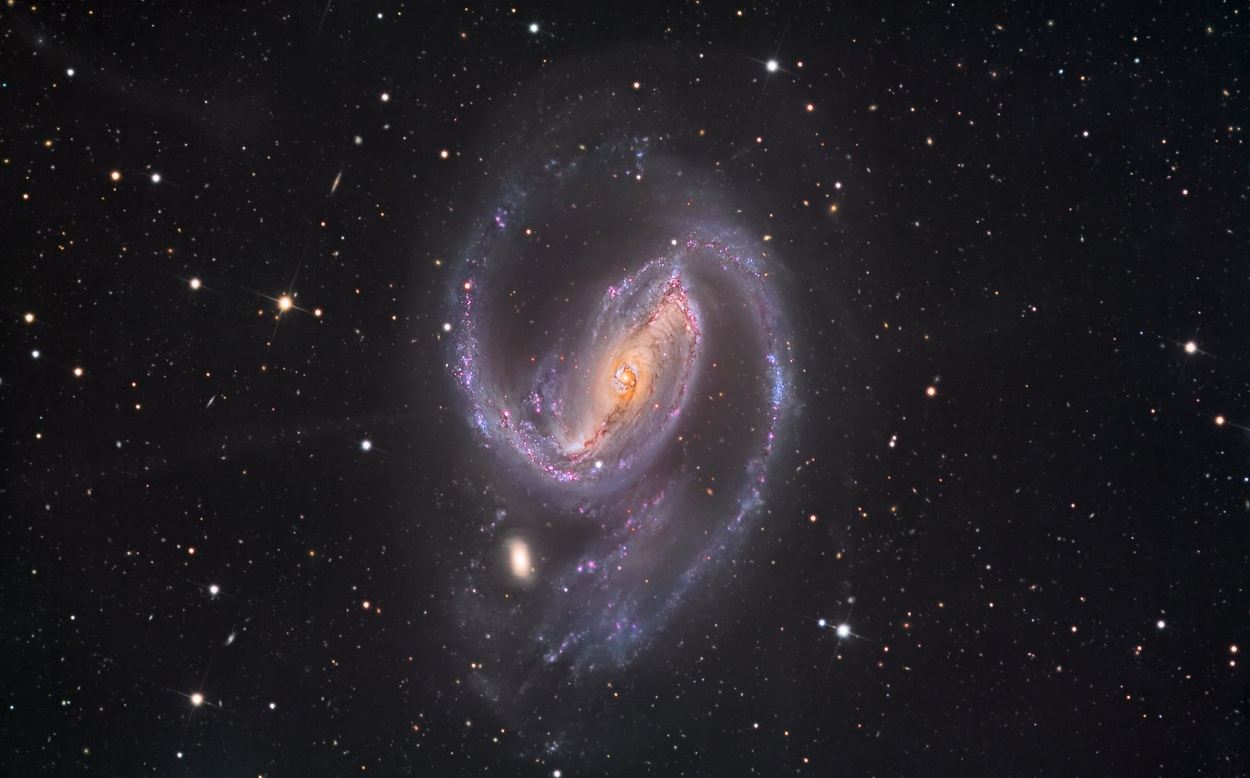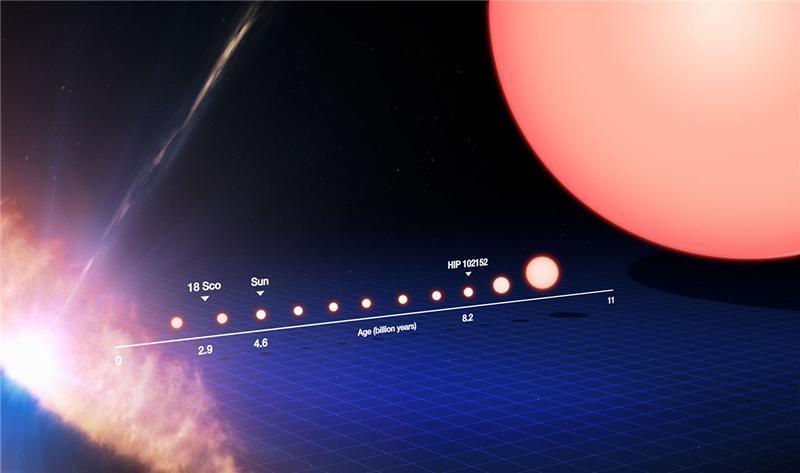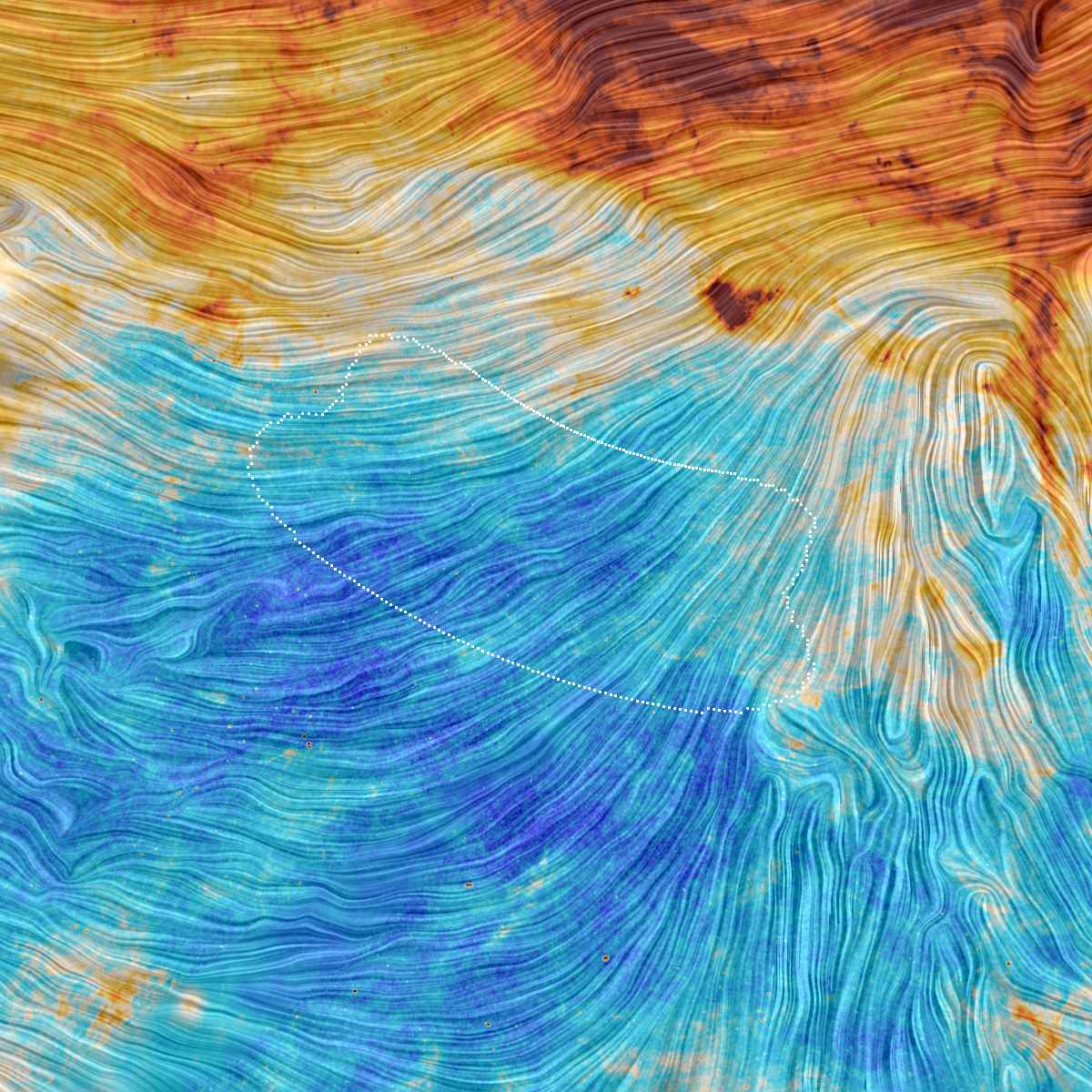Can Anything Move Faster Than Light?
The universe itself is expanding faster than light. But this doesn't violate relativity's constancy of the speed of light, because there's no motion involved. How this could happen is a bit complicated, so let's start from the beginning: the Big Bang. Approximately 13.8 billion years ago, all matter in the universe was hurled in all directions. This initial explosion is still causing the universe to expand. Scientists know this because of the Doppler effect, among several other reasons. The wavelength of light changes as galaxies move away from us, much like the siren of an ambulance changes as it moves away from us.
 For example, consider the Hydra galaxy cluster, located 3 billion light-years away from us. Astronomers measured the distance between Earth and Hydra by looking at the light coming from the galaxy cluster. If this light is passed through a prism, Hydra's hydrogens should appear as four bands of red, blue-green, blue-violet, and violet. However, by the time the light from Hydra reaches us, these bands have been shifted to the red—the lower-energy end of the spectrum. During its journey through space, the light's wavelengths have been stretched. The longer it travels, the more the wavelengths become stretched. The more redshifted the light is, the farther away it is. The magnitude of this shift is called redshift, and it allows scientists to determine how far an object is in space. Hydra isn't the only distant galaxy cluster with a redshift, of course. Everything is receding because the universe is expanding. Hydra is easier to detect because the farther away it is, the faster it's receding from us.
For example, consider the Hydra galaxy cluster, located 3 billion light-years away from us. Astronomers measured the distance between Earth and Hydra by looking at the light coming from the galaxy cluster. If this light is passed through a prism, Hydra's hydrogens should appear as four bands of red, blue-green, blue-violet, and violet. However, by the time the light from Hydra reaches us, these bands have been shifted to the red—the lower-energy end of the spectrum. During its journey through space, the light's wavelengths have been stretched. The longer it travels, the more the wavelengths become stretched. The more redshifted the light is, the farther away it is. The magnitude of this shift is called redshift, and it allows scientists to determine how far an object is in space. Hydra isn't the only distant galaxy cluster with a redshift, of course. Everything is receding because the universe is expanding. Hydra is easier to detect because the farther away it is, the faster it's receding from us.
"There's no limit to the universe's expansion," says Charles Bennett of Johns Hopkins University. Einstein's theory that nothing in space can move faster than light still holds true because space itself is expanding faster than light. Galaxies, in addition to space itself, are moving in and out of space, like raisins in a growing loaf of bread. Some galaxies are so far away, and receding so fast, that their light might never reach us. So, there's no question of anything moving faster than light. The total expansion of the universe is greater than the speed of light.
Popular Science-FYI: Can Anything Move Faster Than Light?









